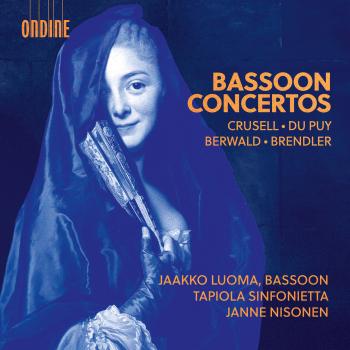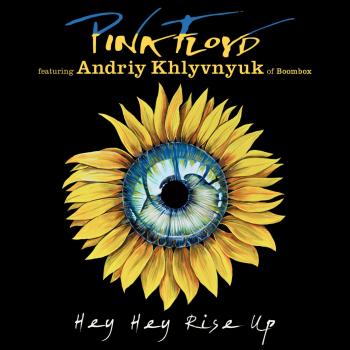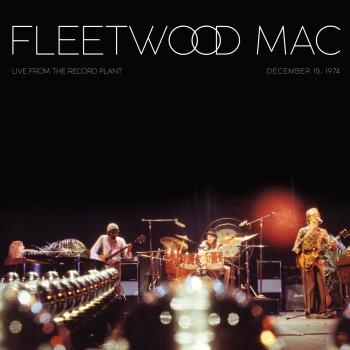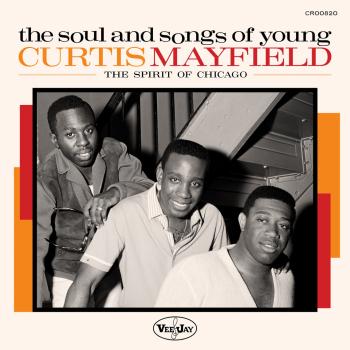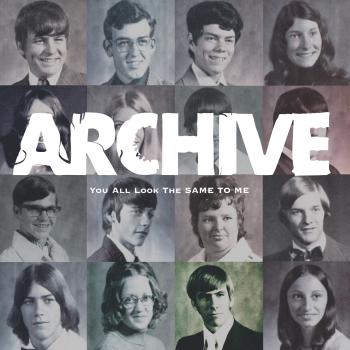
L.A. Woman The Doors
Album info
Album-Release:
1971
HRA-Release:
16.08.2012
Label: Warner Music Group
Genre: Rock
Subgenre: Classic Rock
Artist: The Doors
Composer: Jim Morrison, John Paul Densmore, Raymond Manzarek, Robert Krieger
Album including Album cover
I`m sorry!
Dear HIGHRESAUDIO Visitor,
due to territorial constraints and also different releases dates in each country you currently can`t purchase this album. We are updating our release dates twice a week. So, please feel free to check from time-to-time, if the album is available for your country.
We suggest, that you bookmark the album and use our Short List function.
Thank you for your understanding and patience.
Yours sincerely, HIGHRESAUDIO
- 1 The Changeling 04:24
- 2 Love Her Madly 03:39
- 3 Been Down So Long 04:44
- 4 Cars Hiss By My Window 04:59
- 5 L.A. Woman 07:59
- 6 L'America 04:34
- 7 Hyacinth House 03:13
- 8 Crawling King Snake 05:01
- 9 The WASP 04:16
- 10 Riders On The Storm 07:08
Info for L.A. Woman
Besides being heavy in their early days the Doors were funny too. Funnier than a fish. Who can ever forget those great Morrison ad libs like the one he once did during a lull in 'Gloria' ('Little girl how old are you. little girl what school do you go to, little girl suck my cock')? He was an earnest drinker, which of course helped. Now he's drinking more than ever, hence there's some material basis for all the laughs. And since heaviness has been kicked in the ass of late all the kickers owe it to themselves to sit down with this one. There isn't one serious cut on the entire album.
Just consider the extent to which Jimbo's snake and lizard obsessions contributed to the wanton slaughter of zillions of members of the earth's reptile population for the sake of boots and belts. His influence on that and other fashion trends has to be considerable, an absurd fact considering how the man himself has been literally abandoned by the hippos of rock fandom during his darkest hours. Well now he's taking no chances about being taken seriously or with universal import. In fact he's not even writing his own snake lyrics anymore. Instead there's John Lee Hooker's 'Crawling King Snake.' a whopper of a readymade and proof positive that he and his boy, are still listening to the roots, even after the death of Al Wilson (don't forget that Canned Heat was once L.A.'s number one comedy band. On it Morrison demonstrates his final grasp of all the vocal chicanery only hinted at in flashes on 'Love Street.' Which means he's finally found complete security in caution-to-the-winds Hollywood lemonade singing, the mid-point between bubble gum and a good chance at being invited to sing an Oscar nomination at the 1972 Academy Awards.
And he's even a fair-to-middlin' blues gomper because for the first time he honestly doesn't give a donut about how authentic or any of that the whole thing sounds. He was never actually Fric Burdon but his trans-racial bravado at least hinted at some intent in that direction. Now all the cards are on the table. Just check out 'Cars Hiss by My Window' and compare it to the halfassed blues attempts of fellow Southern Californian Captain Beefheart and see who's got the greater vestige of potentially galling pretentiously indulgent self-esteem. (If you don't admit it's the noble Captain then you can't have much of a sense of either humor or fair play.)
And what's more Jim's backup band has finally reduced its approach to one of ping-ponging the essential free-as-air spirit the man's been toying with ever since be abandoned Howlin' Wolf for Mel Torme. In other words the Doors have never been more together, more like the Beach Boys, more like Love (the band they originally played second fiddle to at the Whiskey or the troubadour or wherever it was). So when it's Morrison setting the tone with lines like 'Why did you throw the jack of hearts away?' on 'Hyacinth House,' it's Manzarck, Robbie and Densmore keeping the second-to-second ridiculousness going on and on with merrygoround tirades of utter mere pleasantness straight out of Derek and the Dominoes with even some Kokomo-classical fancy stepping thrown in for good measure. In terms of what they're after here the Doors as a band never falter and there isn't one bummer cut on the entire album obviously a first for them.
It's also the first time since 'The End' and 'When the Music's Over' that they've been able to pull off anything interesting in the way of long cuts. And there are two of them here, 'L.A. Woman' (with maybe the best Chuck Berry riffs since the Stones and a hell of a lot more Sixties Seventies American flavor) and 'Riders on the Storm' (signaling the return to Del Shannon from whence the Doors' mysterioso-hood was largely derived to begin with), both of them minor monsters. And I'll be a monkey's uncle if 'The WASP (Texas Radio & The Big Beat)' doesn't showcase Morrison's finest command of spoken jive to date, far superior to 'Horse Latitudes' and a demonstration of lyric-supporting timing at least the equal of George Burns in his prime.
You can kick me in the ass for saying this (I don't mind): this is the Doors' greatest album and (including their first) the best album so far this year. A landmark worthy of dancing in the streets. (Bobert Meltzer, Rolling Stone)
Jim Morrison, vocals
Robby Krieger, guitars
Ray Manzarek, organ & piano
John Densmore, drums
Guests:
Jerry Scheff, bass (Tracks 1, 2, 3 and 5)
Marc Benno, rhythm guitar
Produced by Bruce Botnick & The Doors
Digitally remastered.
Rolling Stone '500 Greatest Album of All Time' #362
With an intoxicating, genre-blending sound, provocative and uncompromising songs, and the mesmerizing power of singer Jim Morrison's poetry and presence, The Doors had a transformative impact not only on popular music but on popular culture.
The Doors' arrival on the rock scene in 1967 marked not only the start of a string of hit singles and albums that would become stone classics, but also of something much bigger - a new and deeper relationship between creators and audience. Refusing to be mere entertainers, the Los Angeles quartet relentlessly challenged, confronted and inspired their fans, leaping headfirst into the heart of darkness while other bands warbled about peace and love. Though they've had scores of imitators, there's never been another band quite like them. And 40 years after their debut album, The Doors' music and legacy are more influential than ever before.
Morrison's mystical command of the frontman role may be the iconic heart of The Doors, but the group's extraordinary power would hardly have been possible without the virtuosic keyboard tapestries of Ray Manzarek, the gritty, expressive fretwork of guitarist Robby Krieger and the supple, dynamically rich grooves of drummer John Densmore. From baroque art-rock to jazz-infused pop to gutbucket blues, the band's instrumental triad could navigate any musical territory with aplomb - and all three contributed mightily as songwriters.
The group was born when Morrison and Manzarek - who'd met at UCLA's film school - met again, unexpectedly, on the beach in Venice, CA, during the summer of 1965. Though he'd never intended to be a singer, Morrison was invited to join Manzarek's group Rick and the Ravens on the strength of his poetry. Krieger and Densmore, who’d played together in the band Psychedelic Rangers, were recruited soon thereafter; though several bassists auditioned of the new collective, none could furnish the bottom end as effectively as Manzarek's left hand. Taking their name from Aldous Huxley's psychotropic monograph The Doors of Perception, the band signed to Elektra Records following a now-legendary gig at the Whisky-a-Go-Go on the Sunset Strip.
Their eponymous first album, released in January 1967, kicked off with "Break on Through (to the Other Side)" and also featured the chart smash "Light My Fire", the scorching "Back Door Man" and the visionary masterpiece "The End". The Doors arrived fully formed, capable of rocking the pop charts and the avant-garde with one staggering disc. Before '67 was over, they'd issued the ambitious follow-up Strange Days, with such gems as "Love Me Two Times", "People
Are Strange" and "When the Music's Over".
Next came 1968's Waiting for the Sun, boasting "Hello, I Love You", "Love Street" and "Five to One". Over the next few years they minded over new territory on such albums as 1969's The Soft Parade (featuring "Touch Me" and "Tell All the People"), 1970's Morrison Hotel (which includes "Roadhouse Blues", "Peace Frog" and "Queen of the Highway") and 1971's L.A. Woman (boasting "Rider's on the Storm", "Love Her Madly" and the title track).
They released six studio albums in all, as well as a live album and a compilation, before Morrison's death in 1971. their electrifying achievements in the studio and onstage were unmatched in the annals of rock; and though Morrison's death meant the end of an era, Manzarek, Krieger and Densmore collaborated on two more original Doors albums, Other Voices and Full Circle, and a set of tracks they composed to accompany Morrison's 1969 recording of his poetry, released in 1978 as An American Prayer. They also pursued individual music projects, books, theatrical productions and other enterprises - and remain restlessly creative to this day.
In the decades since the Doors' heyday, the foursome has loomed ever larger in the pantheon of rock - and they remain a touchstone of insurrectionary culture for writers, activists, visual artists and other creative communities. Their songs, featured in an ever-increasing number of films, TV shows, video games and remixes, always sound uncannily contemporary. No matter how the musical and cultural tides turn, The Doors will always be ready to help a new wave of listeners break on through to the other side. (Source: jam inc.)
This album contains no booklet.



